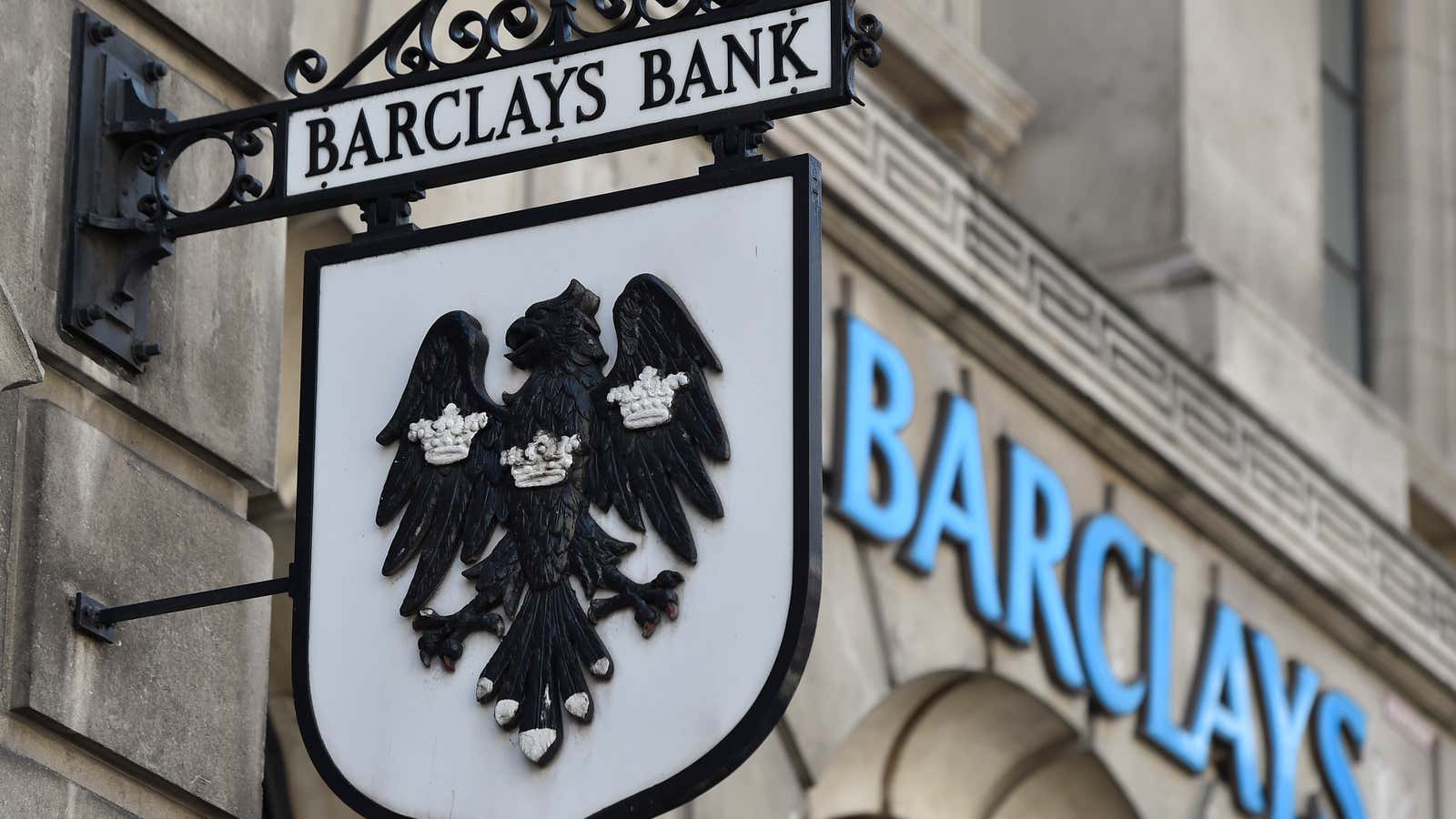Barclays’ business in Africa accounts for 20% of the British bank’s earnings and has actually been growing. So why does it want to sell its 62% stake in South Africa’s ABSA bank and essentially pull out of Africa within the next three years?
The decision has less to do with the economic uncertainty gripping the continent than it does with the British bank’s struggles elsewhere, analysts say.
“The Africa unit is actually generating better returns than the investment bank,” Manzi Rwegasira, head of strategy at Tanzania’s National Microfinance Bank (NMB), told Quartz.
Indeed, as Bloomberg recently noted, the return on tangible equity at Barclays’ Africa business is more than 11%, versus 6% for the company’s investment bank. (Of course, analysts are hoping that Barclays brings down the hatchet on its investment bank business as well.)
What’s driving all this is the broader picture. Barclays’ losses doubled to more than $550 million last year, and its involvement in an interest-rate-rigging scandal netted it a £1.53 billion ($2.2 billion) fine last year. Meanwhile, the scrutiny of UK banks’ capital ratios is not abating. All of these challenges have led Jes Staley, Barclays’ new CEO, to rethink the business and forced him to ways to cut costs and raise capital for its flagging investment business.
One way in which the bank could do that is ask its shareholders to shoulder further dilution, Rwegasira points out. But for a group that has already swallowed dividend cuts and seen the value of its investment decline by almost 40% over the last year, this may be too much of a hard sell. So the bank is taking the other option available to them, which is to sell assets and streamline its business. Barclays already has been getting rid of its euro zone properties to this effect. In Asia, the bank is reportedly looking to offload its private wealth unit, again as part of the larger strategy to simplify the business.
And on Tuesday, that strategy gained further clarity. Staley, as part of the bank’s annual results announcement, said going forward the bank will focus on two divisions: Barclays UK and Barclays Corporate and International. There was no place in this new strategy for the African asset, which the bank will look to sell within the next three years.
But while Barclays officials said that Africa’s economic climate was not behind the decision, there are those who believe it is a factor. Currency fluctuations, especially with the South African rand, where the bulk of Barclays’ business in Africa is based, have hit the company hard. On top of that, policy uncertainty by the Zuma government compounded the volatility in the markets.
“This extreme volatility and the sharp devaluation in value when profits were translated was I think the key to Staley looking for the exit button,” Aly Khan Satchu, chief executive of Nairobi-based investment firm Rich Management, told Quartz. “Capital yes, reputational risks as well, but the big macro point was ‘rogue’ policy-making.”




